Hemingway once wrote,”“I wish I had died before I ever loved anyone but her.”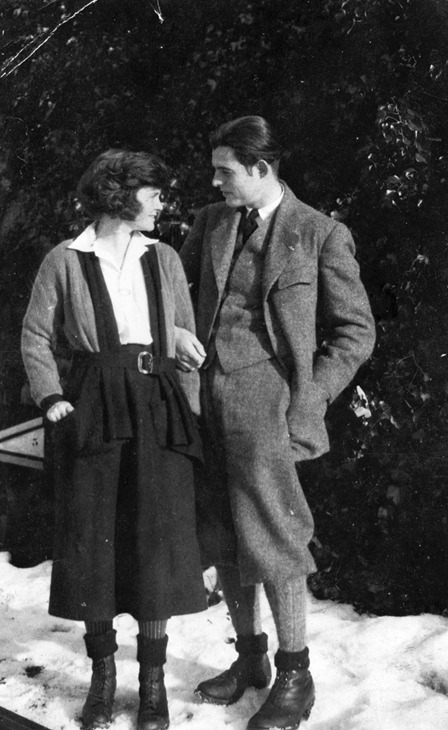
Love was always an unattainable object for dear Hemingway, as it is for so many of us. Scorned by his father and bossed around by his mother, he grasped tightly onto any form of love and self.
Some say he searched for his masculinity by hunting, by drinking,or by writing. But I believe differently. I believe that he searched for it in his scores of women, failing each and every time to find himself in someone else.
He was an unusual man with an astonishing unusual childhood. His mother was unbelievably overbearing, controlling all of the men in the house by any means necessary. Hemingway grew up like most children, cross dressing before he could speak. Oh wait. That isn’t normal is it…?
.
Once he realized this was not normal and that he had lost the respect of his father, Hemingway delved into anything and anything that was remotely manly, leading to his involvement in WWI.
There’s a war going on? I’m not even 18 and the United States isn’t involved…. I KNOW! I’ll join the Italian army!
Sound crazy? Well that was what Hemingway was all about, finding trouble and danger wherever he could. As bad ass as being an ambulance driver sounds, he actually did get injured on the Italian front.
He was immediately moved to a hospital, where just as quickly he fell in love for the first of many times.

Her name was Agnes (sexy I know). She nursed his wounds and his broken heart. Just barely legal, Hemingway begged for her hand in marriage. Although Agnes agreed, she left him for another man as soon as Hemingway was shipped back to America (bitch).
Good riddance I say, because if she hadn’t left him, he would never have met his most iconic wife Hadley Richardson, also known as The Paris Wife. He met her at a party, and instantly fell in love with the woman who was nine years his senior. When she returned home, he wrote her a letter that would ensnare any woman.
“You can make me jealous — and you can hurt most awfully — ’cause my loving you is a chink in the armour of telling the world to go to hell and you can thrust a sword into it at any time. Lord — I thot I was loving you — If I wasnt I never could and never would love any one. Guess I was thinking too much about how I didn’t want you to go — Don’t you believe I love you? … I didn’t want to kiss you goodbye — that was the trouble — I wanted to kiss you good night — and there’s a lot of difference.”
I bet if you’re a guy,even your heart skipped a beat. Hemingway had no trouble with women, but Hadley fascinated him in a way no woman had- she was the exact opposite of his mother. Since she herself had a controlling mother, she was shy and moldable- a trait that emasculated Hemingway in a way he was quite unused to. They had a small wedding, and flew to Europe to enhance Hemingway’s writing.
They were unbearable happy, as Hemingway loved to point out in his memoir A Moveable Feast. She gave him room to write, and they escaped their pasts in the bars of Paris. She was the perfect wife, being there when he needed her, provided endless inspiration, and a beautiful son.
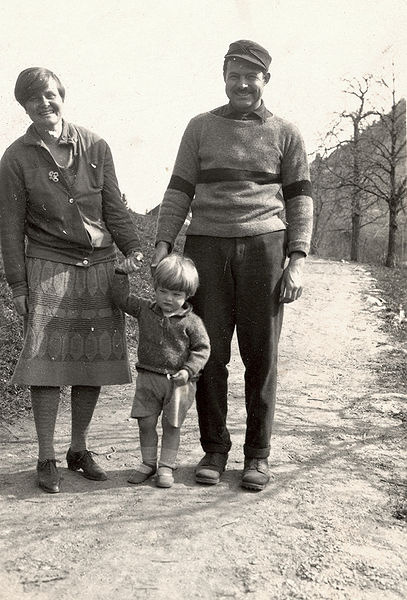
But for Hemingway that wasn’t enough. Nothing was ever enough for him.
He was never one for monogamy, and had an emotional affair with Lady Duff Twysden, who he based Brett off of in The Sun Also Rises. He left Hadley out of the book, and made his injuries from the war the only reason he and lady Duff could not be together. In reality, lady Duff refused to hurt Hadley in such a way. That seemed the end of their marriage troubles, and Hemingway’s other friendships were perfectly innocent. However, as Hemingway said, ‘All things truly wicked must start from an innocence’.
Her name was Pauline Pfeiffer, and she used one of the oldest tricks in the book to snag Hemingway. She became Hadley’s best friend, and moved in with the young couple, and proceeded to have an affair with Hemingway under Hadley’s own roof.
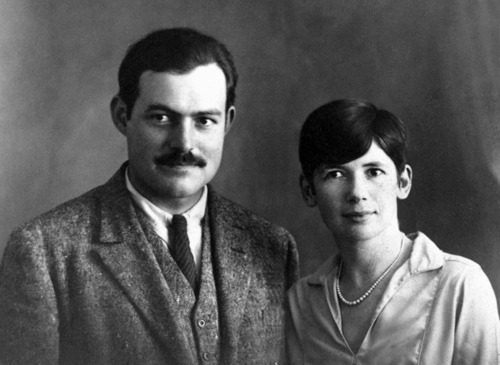
Hemingway agonized over loving two women, but when the divorce papers were signed, he sent Pauline, ‘All I want is you Pfife and oh dear god I want you so I love you love you love you so – and I’m yours all shot to hell’.
WHAT A DOUCHE. But a manly douche, who managed to snag two older women.
But poor Pauline did’t you know? Once you’ve taken a man’s loyalty he can’t ever get it back.
Hemingway met Martha Gellhorn in a bar. people were begining to compare her novella to his writing, and the two hit it off instantly. Hemingway had a certain fascination with the younger woman, calling her ‘Daughter’ and going by the nickname ‘Papa’.

While still married to Pauline, Hemingway accompanied Martha to Spain to cover the Spanish Civil War. In a way Hemingway had met his match, a woman who was as strong, brave’ and talented as he was. But soon the tides turned for them, as she became too much to handle for the egotistical Ernest. She grew tired of his hero worship and loathing of his mother saying, “He hated his mother, with reason. She was solid hell. A big false lying woman; everything about her was virtuous and untrue. Now I know enough to know that no woman should ever marry a man who hated his mother … Deep in Ernest, due to his mother, going back to the indestructible first memories of childhood, was mistrust and fear of women. Which he suffered from always, and made women suffer; and which shows in his writing.”
He was threatened by her talent and ambition. He liked being on top, and she never gave him this ability. She wouldn’t even sleep with him. He resented her as he resented his mother and not surprisingly, she left him in the dust.
Pissed beyond belief, he swore off women. Hence, Hemingway’s last and final love was his cat.
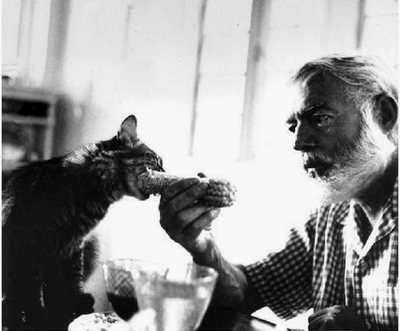
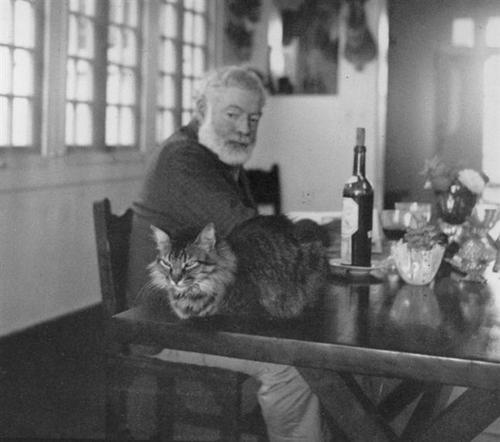
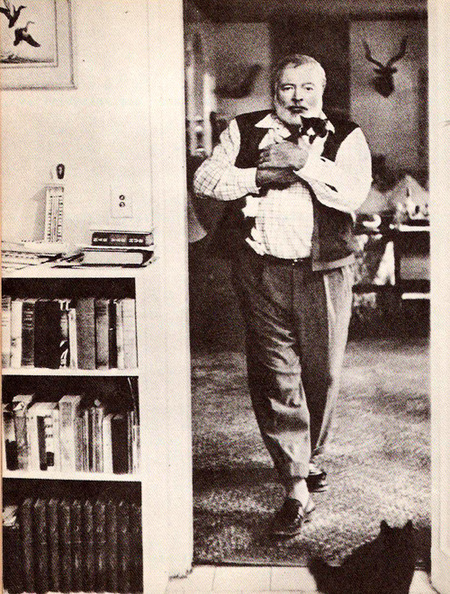

They lived happily together, and that’s where the term. “crazy old cat man” came from.
“One cat just leads to another. . . . The place is so damned big it doesn’t really seem as though there were many cats until you see them all moving like a mass migration at feeding time. . . .”
Ok, that’s a total lie. (Except the quote, the quote is totally real).
He married his final wife less than a year after he divorced Martha, because lord knows it would be impossible for him to be alone for more than 365 days.
He had gotten into a terrible car crash, and a fan of his, Mary Welsh, decided to meet him in the hospital with flowers. The following conversation ensued, instigated by Hemingway:

